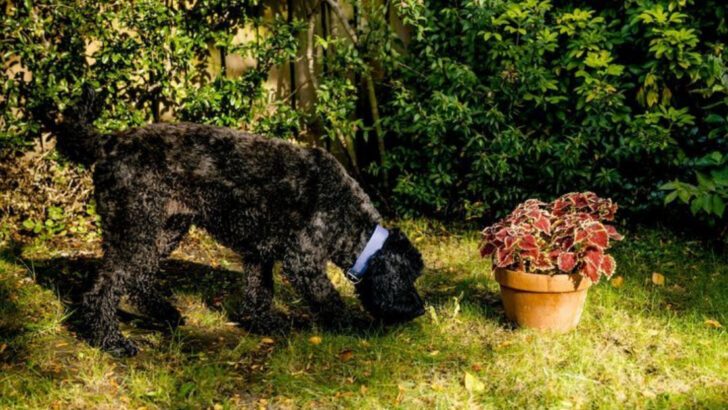One minute your dog’s chasing a ball. The next? They’re mowing your lawn like a hungry cow. Why do so many dogs treat grass like an all-you-can-eat salad bar? Are they sick? Bored? Secretly part herbivore? It’s one of those weird habits that has puzzled dog owners forever—and sparked plenty of myths along the way. Some say it means a tummy ache. Others swear it’s just a quirky snack. The truth? It’s stranger (and sometimes sweeter) than you think. Let’s dig into the grass-chomping mystery and find out why your pup might be grazing like a four-legged lawnmower.
Nutritional Deficiency
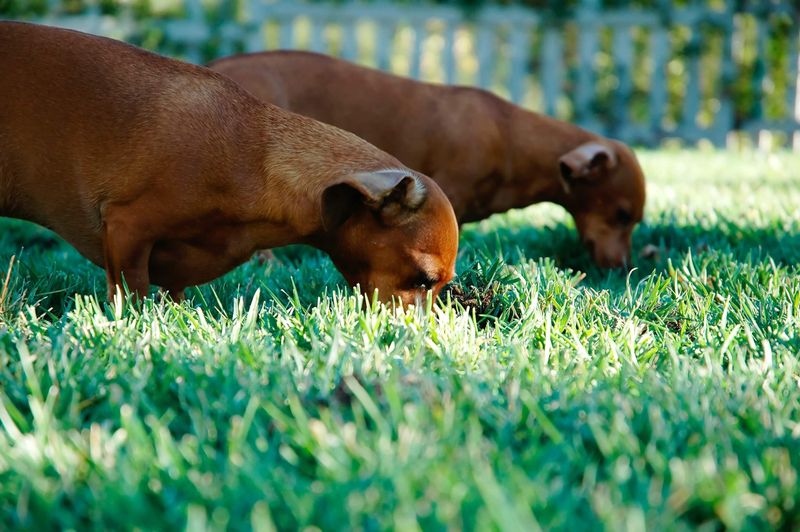
Some veterinarians suggest that dogs eat grass to compensate for a lack of nutrients. While commercial dog food is usually well-balanced, individual dietary needs may vary. Dogs might instinctively turn to grass to fill a perceived gap in their diet.
This behavior could also be linked to a lack of fiber, as grass contains cellulose. Dogs may seek out this fiber to aid digestion.
However, it’s crucial to ensure that the grass they eat isn’t treated with pesticides or chemicals. Owners should observe their pets’ eating habits to assess any nutritional needs.
Natural Instinct
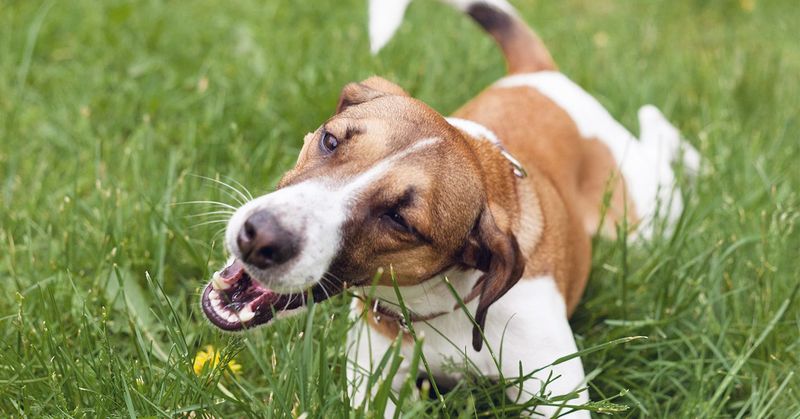
Some experts believe dogs eat grass due to their wild ancestry. In the wild, canines would consume entire animals, including stomach contents filled with plant material.
This instinctual behavior might still be present in modern dogs, leading them to grass munching. They could be mimicking ancestral habits, treating grass as part of their natural diet.
This explanation offers insight into the ingrained behaviors that persist despite domestication. Observing this behavior can provide a glimpse into the evolutionary history of dogs, connecting them to their untamed roots.
Behavioral Exploration
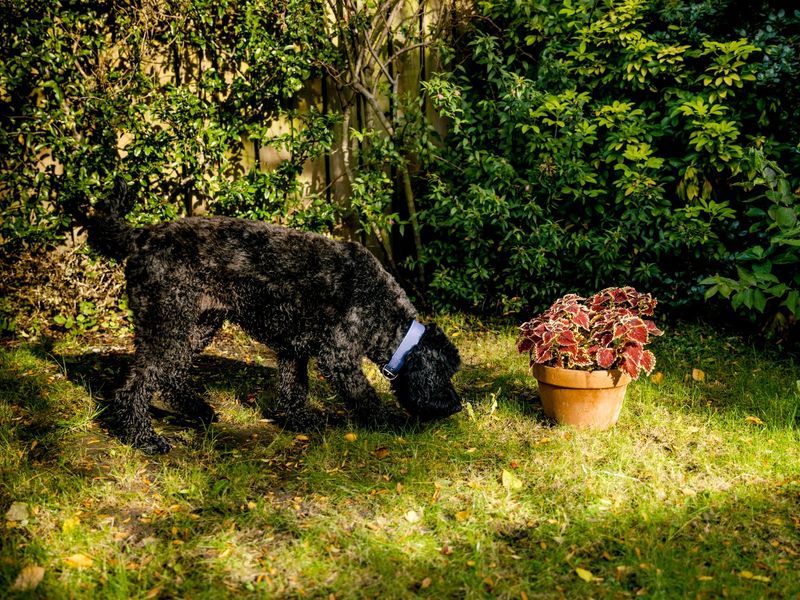
Dogs are naturally curious creatures, often exploring their environment through taste and smell. Grass eating could be an extension of this exploratory behavior.
For many dogs, nibbling on grass is simply a way to engage with their surroundings. It doesn’t always indicate a problem or need but rather curiosity.
Owners may notice this behavior more in puppies or dogs with high energy levels. The exploration of grass can be a sensory experience, enriching their understanding of the world around them.
Providing safe, pesticide-free areas for this exploration is beneficial.
Inducing Vomiting
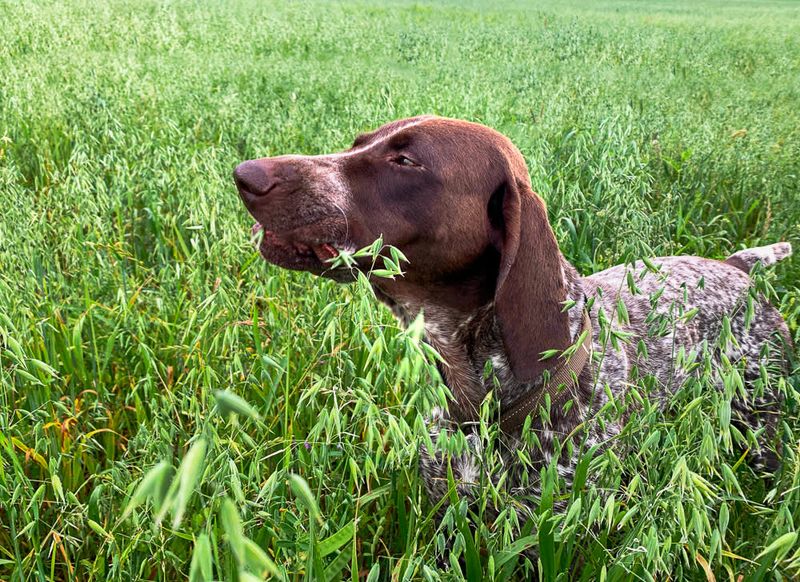
Grass eating is sometimes linked to gastrointestinal issues. Dogs may consume grass to induce vomiting, alleviating discomfort from upset stomachs.
This self-medicating behavior might help them expel something causing distress. It’s observed that not all grass consumption leads to vomiting, suggesting other motivations could be at play.
If a dog frequently eats grass and vomits, it might be wise to consult a veterinarian. While occasional grass eating is typical, excessive consumption warrants attention. Understanding these patterns can help address potential health concerns effectively.
Enjoyment and Taste
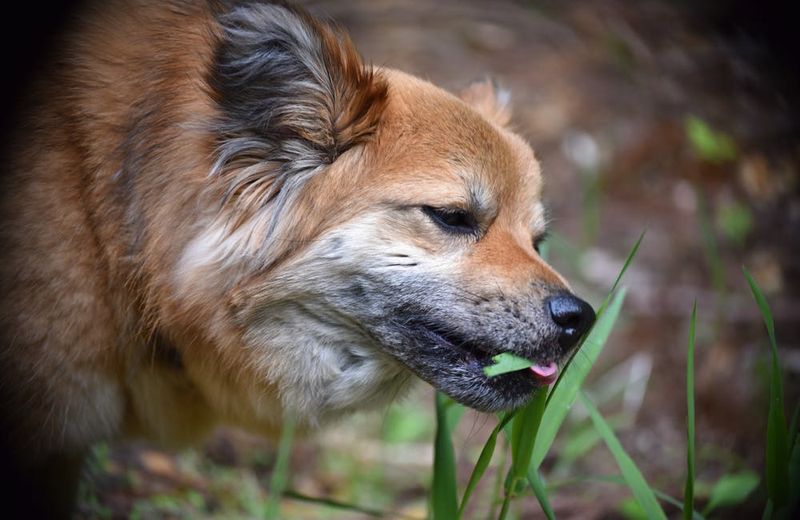
Some dogs genuinely enjoy the taste and texture of grass. The sensation of crunching on fresh blades might be satisfying, similar to how humans enjoy snacks.
This enjoyment doesn’t necessarily indicate any dietary need or problem. It could simply be a preference, much like a human enjoying a specific type of food.
Owners observing this behavior can rest assured that it’s a normal part of canine life. Providing access to safe, pesticide-free grass can enhance their pets’ happiness. This behavior reflects the diversity in dogs’ tastes and preferences.

